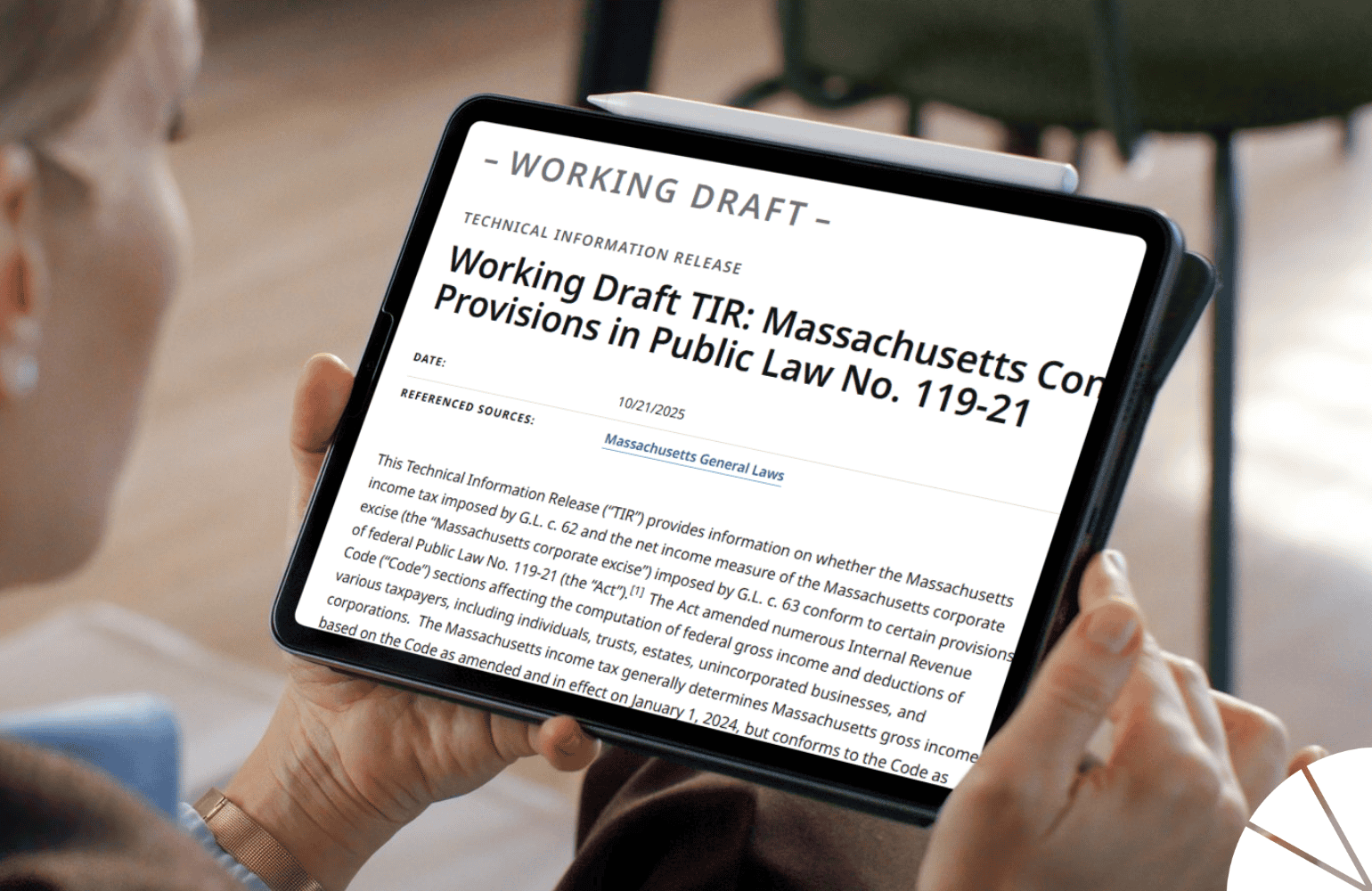Authored by RSM US LLP
Executive summary
Republicans in the U.S. House of Representatives have proposed a new section of the tax code that would target inbound investment by individuals, entities and governments from countries that have in force any of the following:
- A digital service tax (DST)
- A Pillar II undertaxed profits rule (UTPR)
- A diverted profits tax (DPT)
- Similar extraterritorial or discriminatory taxes that Treasury determines is borne disproportionately by U.S. persons.
Enactment could have significant repercussions on inbound investment from impacted countries. U.S. investment funds would likely be compelled to consider structural adaptations for foreign investors in affected countries.
Republicans in the U.S. House of Representatives have proposed a new section of the tax code that would target inbound investment by individuals, entities and governments from countries that have in force any of the following:
- A digital service tax (DST)
- A Pillar II undertaxed profits rule (UTPR)
- A diverted profits tax (DPT)
- Similar extraterritorial or discriminatory taxes that Treasury determines is borne disproportionately by U.S. persons.
The proposed section 899—titled Enforcement of Remedies Against Unfair Foreign Taxes—would increase the rate of tax on FDAP (fixed, determinable, annual or periodical) income, ECI (effectively connected income), and the investment income tax on private foundations. The U.S. tax rate would increase by 5% every year the foreign tax is in effect, with a maximum increase of 20% above the statutory or treaty reduced tax rate.
Although the version of the draft legislation that the House Ways and Means Committee approved on May 14 would generally allow section 899 to override the lower rates in U.S. tax treaties, it is not clear whether the rate increase would also apply where the income is exempt under a treaty (e.g., where the treaty provides an exemption from ECI in the absence of a permanent establishment or provides an exemption for interest, dividends, or royalties).
The draft legislation would also prevent the section 892 exemption for investment income earned by foreign governments from applying to countries with these types of foreign taxes in effect. This may create an incentive for these governments (including sovereign wealth funds) to invest in other countries or to modify the nature of their U.S. investments to qualify for an alternative U.S. exemption (e.g., the section 881(c) portfolio interest exemption or the section 897(l) U.S. real property exemption for foreign pensions).
The draft legislation would also modify BEAT (base erosion and anti-abuse tax) for U.S. corporations that are more than 50% owned (directly or indirectly) by persons from these countries by treating the gross receipts and the base-eroding percentage tests as having been met. It would also eliminate the exceptions for deductible payments subject to full withholding and payments qualifying for the service cost method. This will likely cause BEAT to play a more significant role in tax considerations for U.S. corporations with affiliates from these countries.
Implications of the proposed section 899
The proposed section 899 is designed to put pressure on foreign countries to repeal these types of taxes. However, one can expect that not all impacted countries will respond immediately following enactment. The provisions may have significant repercussions on foreign investment from countries such as France, the United Kingdom, Germany, Japan, Canada, the Netherlands and India, which currently have a DST or UTPR in force.
Taxpayers that are resident in a treaty jurisdiction may challenge section 899 tax in court on the basis that it violates the nondiscrimination article in an applicable tax treaty. However, because the statute overrides existing treaty obligations, foreign countries that do not seek to repeal their DSTs or UTPRs may decide to terminate their treaty with the U.S.
If section 899 is enacted, U.S. investment funds may need to develop a new parallel structure for foreign investors from countries impacted by this provision and may want to consider forming holding structures in countries without these types of taxes to mitigate the impact.
With respect to ECI earned by individuals, the rate increase would only apply to ECI from the sale of U.S. real property interests. It would not apply to ECI from a U.S. trade or business. This may create an incentive for inbound investors from these countries to avoid using foreign blocker corporations to prevent an application of the higher rates on income from a U.S. trade or business.
Proposed section 899 would apply to tax years beginning 90 days after the date of enactment for taxpayers resident in countries with a UTPR, DST, or other “unfair foreign tax” in force on the date of enactment.
Countries with UTPRs in force as of April 2025
Austria
Belgium
Bulgaria
Canada
Croatia
Cyprus
Czech Republic
Denmark
Finland
France
Germany
Greece
Hungary
Ireland
Italy
Luxembourg
Netherlands
New Zealand
Norway
Poland
Portugal
Romania
Slovenia
South Korea
Spain
Sweden
Thailand
Turkey
United Kingdom
Countries with DSTs* in force as of April 2025
Austria
Belgium
Canada
Colombia
Czech Republic
France
Hungary
India
Indonesia
Israel
Italy
Kenya
Nepal
New Zealand
Poland
Rwanda
*This list does not include countries with digital permanent establishment rules, equalization levies (India), or more limited industry-specific digital taxes.
This article was written by Ramon Camacho, Aureon Herron-Hinds, Ayana Martinez, Lynn Dayan and originally appeared on 2025-05-21. Reprinted with permission from RSM US LLP.
© 2024 RSM US LLP. All rights reserved. https://rsmus.com/insights/tax-alerts/2025/house-tax-bill-aims-to-counter-unfair-foreign-taxes-on-us-investments.html
RSM US LLP is a limited liability partnership and the U.S. member firm of RSM International, a global network of independent assurance, tax and consulting firms. The member firms of RSM International collaborate to provide services to global clients, but are separate and distinct legal entities that cannot obligate each other. Each member firm is responsible only for its own acts and omissions, and not those of any other party. Visit rsmus.com/about for more information regarding RSM US LLP and RSM International.
The information contained herein is general in nature and based on authorities that are subject to change. RSM US LLP guarantees neither the accuracy nor completeness of any information and is not responsible for any errors or omissions, or for results obtained by others as a result of reliance upon such information. RSM US LLP assumes no obligation to inform the reader of any changes in tax laws or other factors that could affect information contained herein. This publication does not, and is not intended to, provide legal, tax or accounting advice, and readers should consult their tax advisors concerning the application of tax laws to their particular situations. This analysis is not tax advice and is not intended or written to be used, and cannot be used, for purposes of avoiding tax penalties that may be imposed on any taxpayer.





